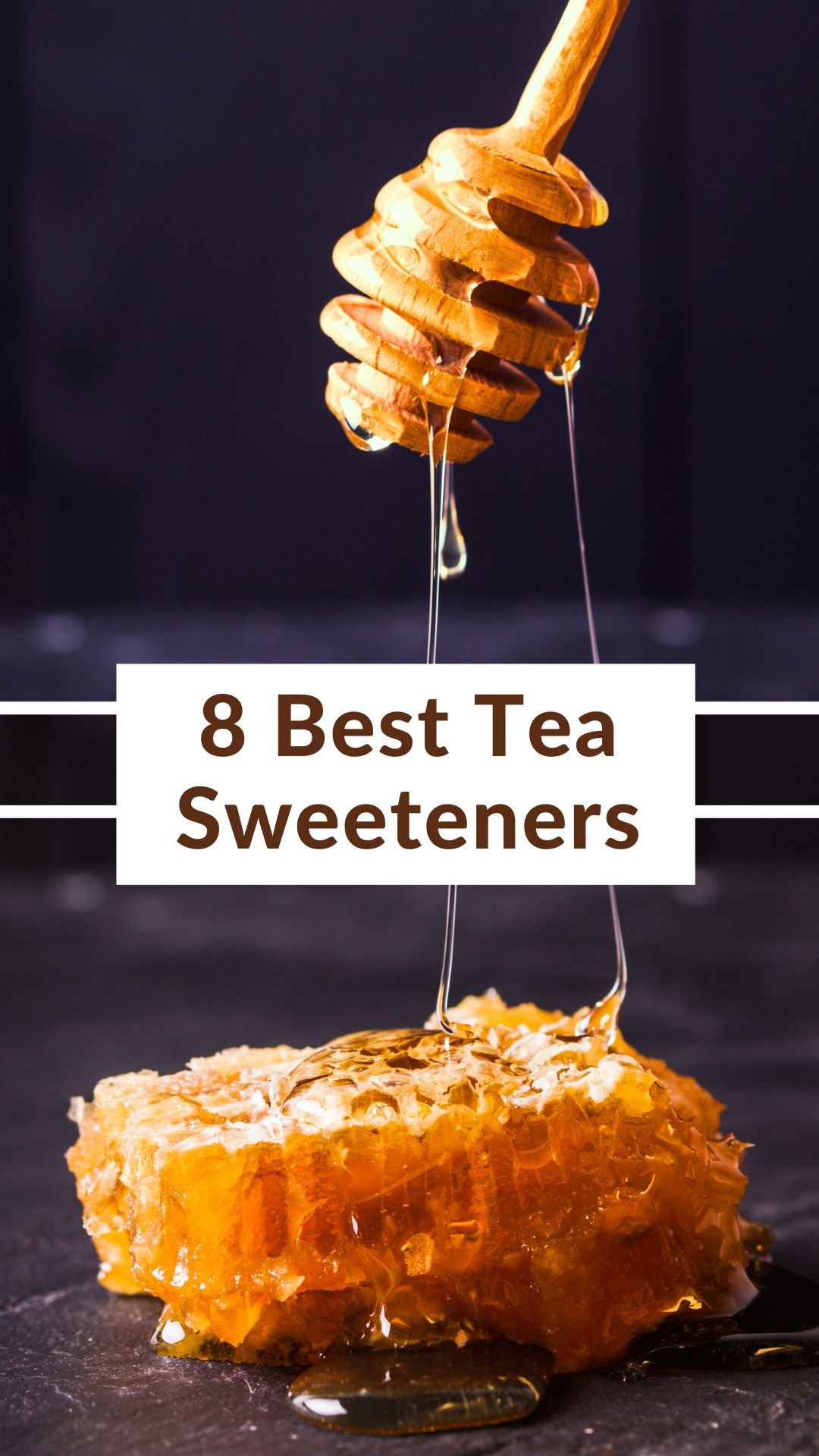Tea is as nutritious as it is delicious. Packed with antioxidants, it’s a bonus for your health.
So why ruin it with refined sugar?
From raw honey and maple syrup to carb-free stevia, there are wholesome choices that sweeten tea, are healthier than sugar, and add inspiring new dimensions to its flavor.
In this article, you will find guilt-free ways to liven up your brew. Let’s explore the best tea sweeteners and why they belong in your cup.
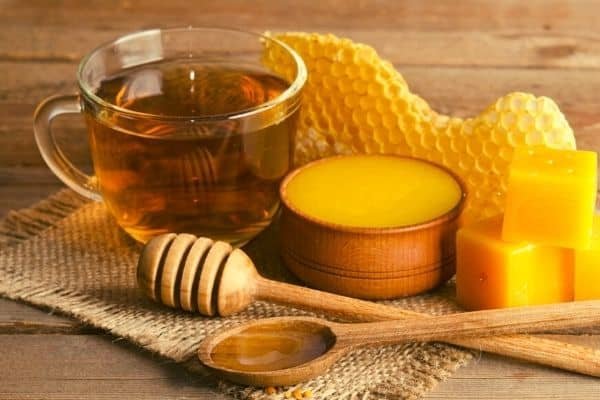
Why and How to Sweeten Tea Without Sugar
In 1915, the average American consumed 17.5 pounds of sugar annually.
Today, we devour more than 150 pounds per person, an estimated 45-percent of it guzzled in soft drinks from soda to sweet tea.
With empty calories from sugar contributing to soaring rates of diabetes, obesity, and heart disease, health professionals are advising people to cut back where they can.
The good news is that you don’t have to sacrifice dessert because making simple changes, like sweetening your tea without sugar, can have a remarkable impact. Alternative sweeteners aren’t always low-carb or calorie-free — they may not help you lose weight — but most are less processed and retain valuable nutrients from trace minerals to fiber.
From light to full-bodied, they contribute delicate flavors that enhance your tea without overpowering it, and some have surprising medicinal benefits. The advantages are too good to ignore.
8 Healthy Sweeteners for Tea
There are dozens of sugar substitutes on the market, but why choose artificial sweeteners with questionable health effects when these natural alternatives will hit the spot?
1. Raw Honey
Raw honey is produced by bees. Unprocessed, it’s as fresh as what comes from the hive.
Producers filter it through mesh or fine cloth to remove obvious impurities, packing it within minutes of harvest.
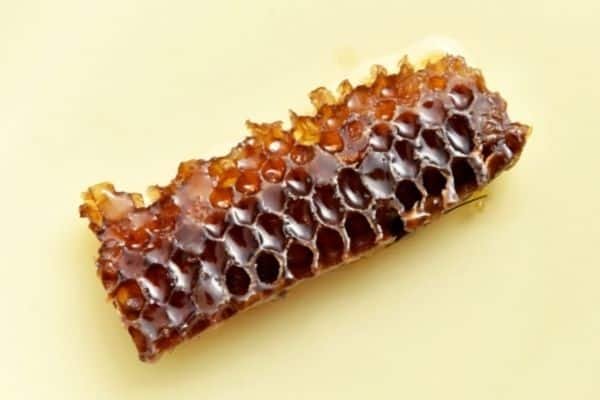
As sweet as sugar, honey from different nectar sources varies in flavor and aroma.
Finding the best honey for tea depends on what kind of tea you mix it in as well as your personal preference.
Bees feeding on clover produce light, sweet honey — sunflower honey has a noticeable tang. Mix and match different varieties to complement or contrast your favorite loose-leaf.
Unlike most brands sold on supermarket shelves, raw honey is unpasteurized. It has many health benefits because it retains most of its nutrients.
Containing more than 30 trace minerals and polyphenol, a powerful flavonoid with anti-inflammatory and anti-aging properties.
A prebiotic, honey supports gut health and is as effective at treating certain types of stomach ulcers as antibiotics.
Unpasteurized honey can harbor harmful microorganisms, including the bacteria that cause botulism. Symptoms are rarely severe in adults, but they can be fatal in young children. Never give raw honey to infants.
If you are going to buy some, check out our guide with the best organic raw honey brands.
2. Coconut Sugar
Coconut sugar is made from the flowers of palm trees. The sap is heated to remove water, producing a thick syrup or granular crystals.
Environmentally friendly, palm trees produce 50-percent more sugar per acre than sugar cane using fewer resources.
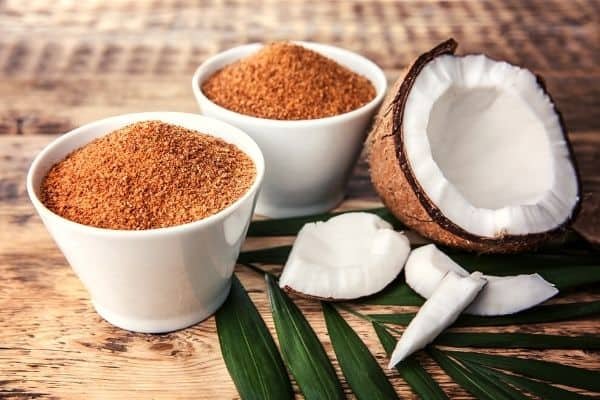
Coconut sugar tastes more like brown sugar than white with soft caramel undertones. Mild, it’s slightly earthy but has no coconut flavor.
Experts disagree on its nutritional value — the minimal processing destroys some of its vitamins and minerals. It has the same number of calories and carbohydrates as table sugar, but it also contains inulin, a type of fiber that slows down its absorption and minimizes blood sugar spikes.
Still, there are no disadvantages to using coconut sugar, and the flavor is intriguing. If you drink more than a few cups daily, the perks add up.
3. Maple Syrup
Maple syrup is made from the sap of maple trees. More than 80-percent of it is produced in Canada.
It’s subdivided by grade and color, reflecting the degree of refinement.
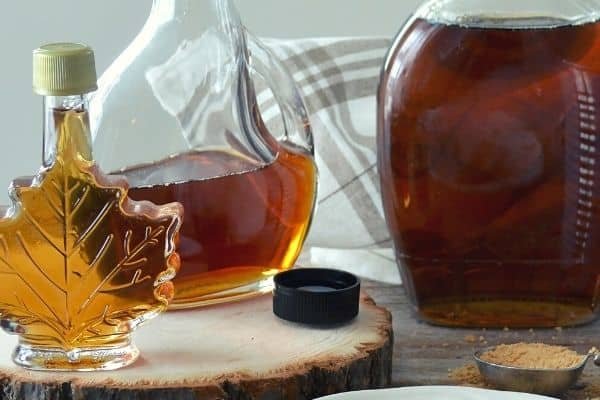
Grade A is lighter and better for pancakes and tea. Darker syrups harvested later in the season are suitable for baking and sauces. The best maple syrup brands come from Canada and northern parts of the USA.
Described as a blend of caramel and butterscotch flavors, it’s sweeter than sugar but not overwhelming.
Maple syrup packs a healthy dose of minerals, including a hefty amount of manganese for strong bones and a vibrant metabolism. It contains more than 20 antioxidants — the darker the syrup, the higher the concentration.
At 52 calories per tablespoon, maple syrup isn’t the best choice for weight loss or for people with diabetes. But as a healthier replacement for sugar, it’s a nutritious alternative with a tantalizing spark of flavor.
4. Licorice Root
Licorice root is harvested from the licorice plant, Glycyrrhiza glabra. Cultivated in Europe, Asia, and the Middle East, it’s been used medicinally for millennia.
Brewed with tea, it makes a naturally sweet cup.
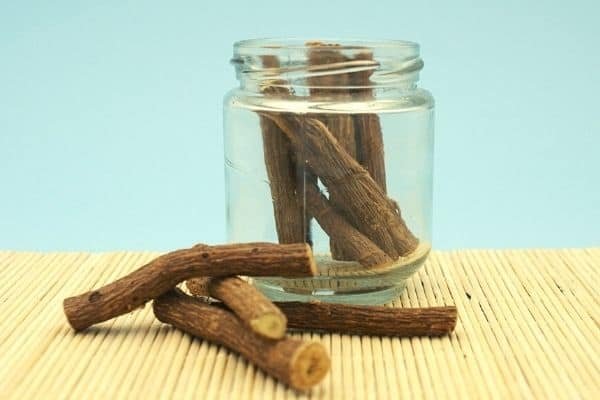
Despite its name, the root doesn’t taste much like licorice candy. It’s 30-50 times sweeter than sugar with a slight tang. Use it sparingly — it’s bitter in amounts over five grams.
Loaded with antioxidants, licorice has many health benefits including antibacterial and anti-arthritic properties. It’s been studied for its protective effects against cancer and is proven to ease the symptoms of acid reflux. Low-calorie, it’s popular among dieters.
Too much glycyrrhizin, the compound that gives licorice root its trademark flavor, may reduce potassium levels in the body. A small Finnish study showed large amounts are associated with developmental disabilities in unborn children.
The FDA states licorice root is safe for most adults in the amounts typically consumed, but medically sensitive people should consult their physicians.
5. Stevia
Stevia sweeteners come from the Stevia rebaudiana plant. Leaves are harvested, dried, and pulverized into powder or soaked in water to make drops.
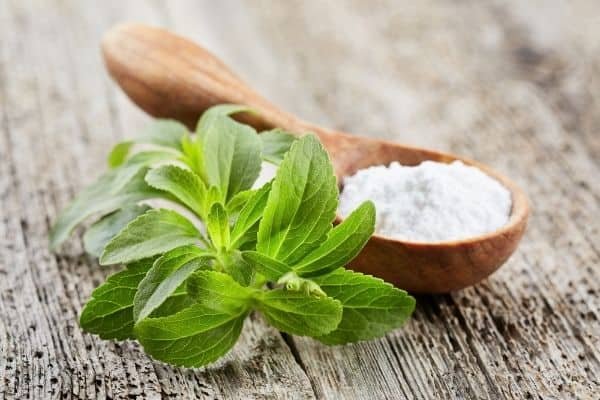
Hundreds of times sweeter than sugar, it has a licorice-like flavor. Leaves harvested from your backyard may have a harsh aftertaste, but commercial versions undergo additional processing to remove unwanted bitterness.
Calorie-free, Stevia is a plus for people with diabetes. Keto-friendly, it contains no carbohydrates and may help regulate blood glucose levels.
Stevia also contains sterols and antioxidants, compounds with anti-inflammatory and anti-cancer properties. It’s been a popular sweetener in South America for generations.
People sensitive to sugar alcohols may experience mild bloating and loose stool with too much stevia. In moderation, it’s considered side effect-free.
6. Monk Fruit Extract
This fruit has been used as a traditional remedy in China and Thailand and its extract is now becoming common in the West also. Various products containing monk fruit extract are very popular among people that follow a ketogenic diet.
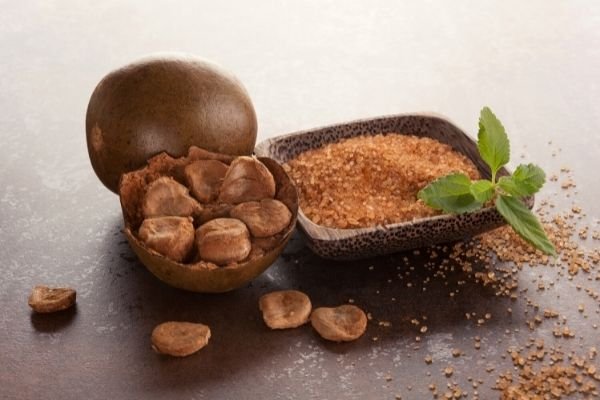
Pure monk fruit sweeteners can be 200 times sweeter than sugar and contain no calories.
Monk fruit sugar is made by extracting mogrosides from Luo Han Guo also known as the monk fruit. Mogrosides are molecules that are very sweet and contain plenty of antioxidants with many health benefits.
Mogrosides can aid in preventing cancer and inflammation. Research also shows that they can be useful in treating type 2 diabetes. In addition, monk fruit sweeteners are a great option for people who are worried about their dental health.
7. Agave Nectar
Agave nectar is pressed from the leaves of the agave plant. Heated, the sap thickens into a golden syrup as its complex carbohydrates break down into simple sugars.
Shelf-stable, it doesn’t crystallize over time.
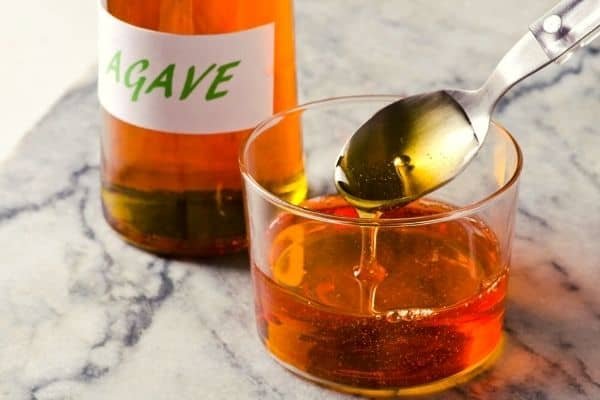
Like maple syrup, it’s classified by color — light, amber, and dark. Light nectar has a clean, neutral taste with subtle caramel undertones and no discernible aftertaste. Darker varieties have more nuance.
Agave nectar has 30-percent more calories than sugar, but it’s sweeter, so you’ll use less. Up to 90 percent fructose, it has a lower glycemic index and doesn’t cause spikes in blood glucose.
In a small study, large amounts of agave nectar increased bad cholesterol. Expect more studies as its use in the United States increases.
8. Blackstrap Molasses
Blackstrap molasses is a by-product of sugar production. A thick syrup, it’s sweet in its own right.
Classified by color based on how many times it’s boiled, Blackstrap molasses is the darkest, thickest, and most nutritious.
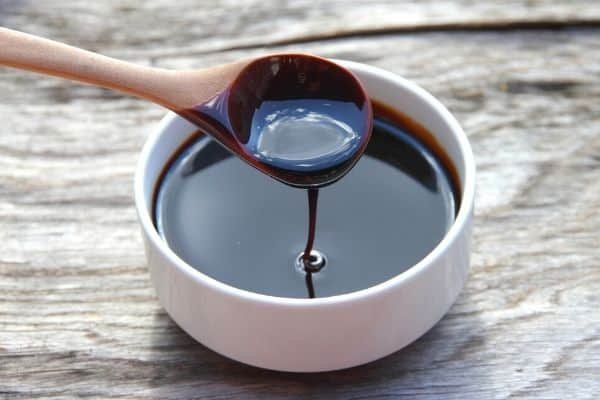
Molasses has a complex flavor that’s challenging to describe. Sweet and smoky with a hint of spice, it’s pungent — a little goes a long way.
Packed with nutrition, a single 42-calorie tablespoon contains 20-percent of the recommended daily allowance of iron — essential for red blood cell production. Rich in calcium, magnesium, potassium, and selenium, it’s known to support brain health.
Ounce for ounce, it contains as many carbohydrates as table sugar — a disappointment for diabetics. But otherwise, it might be the healthiest sweetener money can buy.
Excessive consumption can cause lower abdominal cramps and loose stool — it’s s folk remedy for constipation.
Molasses labeled “sulfured” was sulfur-treated during processing to kill bacteria and could provoke an allergic reaction in people sensitive to sulfites. Unsulfured molasses is equally delicious and shelf-stable without the risk.
Healthy Sugar Alternatives for Tea – Final Thoughts
Too much sugar in your diet isn’t good for you — it’s a habit that’s hard to kick. But tea can be both sweet and healthy with the right sweeteners.
Less refined, more nutritious options eliminate empty calories and give your body more of what it needs with every soothing sip!
Ps. If you are looking for something with numerous science-backed benefits, take a look at our guide with the best manuka honey brands on the market.
